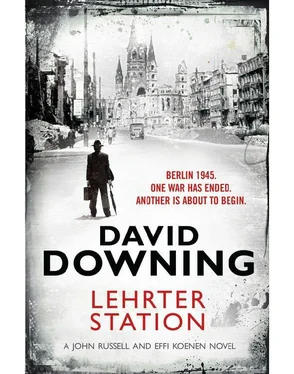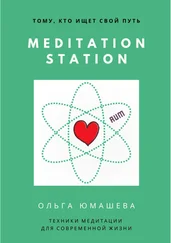David Downing - Lehrter Station
Здесь есть возможность читать онлайн «David Downing - Lehrter Station» весь текст электронной книги совершенно бесплатно (целиком полную версию без сокращений). В некоторых случаях можно слушать аудио, скачать через торрент в формате fb2 и присутствует краткое содержание. Жанр: Шпионский детектив, на английском языке. Описание произведения, (предисловие) а так же отзывы посетителей доступны на портале библиотеки ЛибКат.
- Название:Lehrter Station
- Автор:
- Жанр:
- Год:неизвестен
- ISBN:нет данных
- Рейтинг книги:5 / 5. Голосов: 1
-
Избранное:Добавить в избранное
- Отзывы:
-
Ваша оценка:
- 100
- 1
- 2
- 3
- 4
- 5
Lehrter Station: краткое содержание, описание и аннотация
Предлагаем к чтению аннотацию, описание, краткое содержание или предисловие (зависит от того, что написал сам автор книги «Lehrter Station»). Если вы не нашли необходимую информацию о книге — напишите в комментариях, мы постараемся отыскать её.
Lehrter Station — читать онлайн бесплатно полную книгу (весь текст) целиком
Ниже представлен текст книги, разбитый по страницам. Система сохранения места последней прочитанной страницы, позволяет с удобством читать онлайн бесплатно книгу «Lehrter Station», без необходимости каждый раз заново искать на чём Вы остановились. Поставьте закладку, и сможете в любой момент перейти на страницу, на которой закончили чтение.
Интервал:
Закладка:
He was wondering what, if anything, he should do with the body when his ears picked up the sound of an approaching vehicle. Two headlights were growing brighter on Invalidenstrasse. It sounded like a jeep. The Red Army.
He began walking back towards the station, hugging the side of the buildings. Would the soldiers notice the body? And if so, would they bother to check who it was? He was about two hundred metres from the Stadtbahn station entrance, and he still had the wide and empty road to cross. The sector border was around here somewhere, but he was damned if he knew exactly where. And who would arrest the Soviets for trespassing?
He heard the jeep behind him start to slow, then suddenly rev up again. There was no time to cross the road. He had to get off it. As he ran towards the railway bridge, a turning appeared on his right, a road running down through the bomb-twisted gates to the distant yard and sheds. The road itself looked depressingly straight, so instead he plunged down the snow-covered embankment. Losing his footing, he rolled the rest of the way, and slammed into a post that was half-concealed by the snow. As he got painfully to his feet, he heard movement on the road above, a squealing of brakes and urgent voices. Somewhere behind him a bullet struck metal.
He was only a few metres from the road bridge, and Jesse Owens would have envied his sprint into the shadows that lay beneath it. A few hundred metres up the tracks several glowing fires were visible — the refugee camp around the main line station. He started running in that direction, and was daring to hope that the Russians had given up on him when another bullet hissed past his head. Glancing back through the veil of snow he could see two figures on the tracks, and two more on the bridge.
The next few shots were less accurate, and a line of empty cattle cars offered the chance to duck out of sight. He ran along behind the train, and as he neared the end, realised he had an audience — there were people living in the last few cars. He tossed his gun under one of them, and slowed to a walk as he passed under the elevated Stadtbahn and approached the main line platforms. Now there were lots of people, sitting or lying under the splintered canopies, or gathered round a line of makeshift braziers. As he walked up the platform he became conscious of a rising sound behind him, a strange blend of fear, surprise and loathing, as news spread among the German refugees that the hated Red Army had somehow caught up with them.
Russell walked on, past the room where he and Effi had found Torsten and the children, and out onto the old concourse, where UNRRA was serving watery soup to whoever wanted it. He took a bowl and sat with it, keeping one eye open for the Russians, waiting for the shock to subside. His heart was still drumming inside his chest, and it was all he could do not to burst into tears. When the thought crossed his mind that he wanted his mother, he almost laughed out loud.
Taking one life shouldn’t feel so huge, not when a war had killed millions. But by God it did.
At least the Russians had thought better of invading the station, and after half an hour’s wait he judged it safe to take his leave. After consigning the envelope to a convenient brazier he walked back up to the Stadtbahn platform which he’d left an hour and a killing before.
A train was pulling in as he reached the top of the steps, and he squeezed himself aboard. As it rattled along above Luneburger Strasse he stood, face pressed against the window, his mind a foggy blank. At Zoo Station he sleepwalked his way down to the familiar buffet, and joined the queue before he realised that coffee was not what he needed. The first bar he came to supplied a ludicrously expensive schnapps which he downed in a single swallow. He felt like repeating the trick with the second, but carried it instead to a table, and sank wearily into a chair.
He had just killed a man in cold blood, and the most that he felt was a lack of surprise. It had been coming for years, he thought. Even the identity of the victim seemed part of the some strange logic — not a Nazi, but a high-ranking member of the NKVD, a guardian of the Revolution that had once so inspired him, that had changed his life, found him the mother of his son, brought him to Germany.
Shchepkin would understand the warped inevitability of it all, he thought. But no one else.
There was no use trying to explain this to Effi — she just didn’t think that way. He would tell her he had killed Nemedin in self-defence. That if he hadn’t, Nemedin would have killed him, and Shchepkin, and most likely Shchepkin’s wife and daughter. And sooner rather than later.
A simpler story, and also true.
But there’d been so many other moments of choice. He found himself remembering his and Effi’s day-trip to the Harz Mountains six summers earlier. That was when they’d decided that some sort of resistance to the Nazis was the least they could live with. Had they made the right decision? Would the world really have been that different if they’d put their consciences in hibernation for a few years? People now dead — like the Ottings in Stettin — might still be alive. He and Effi, he and Paul, would not have spent more than three years apart. He would never have met Nemedin, or stood above his corpse in the snow.
But good things had also flowed from that decision. If his own contribution had often felt marginal, he had no doubt that Effi had saved lives.
And Rosa, he thought. A random consequence of the path they had chosen, yet with more power to change their own lives than any twist of political fate. A fresh infusion of innocence to replenish their rapidly diminishing supply. And he missed the girl, much more than he’d expected he would.
‘Are you sure you’re all right?’ Effi asked him, as they set out the following morning.
He had told her everything the night before, and she’d been less shocked, at least on the surface, than he’d expected. But he was still afraid of catching a new look in her eyes, one that said she saw him differently, that she was disappointed in him. ‘I’m fine,’ he told her.
She gave his arm an encouraging squeeze, but didn’t pursue the matter. She was sure there were things she should say, but hadn’t yet worked out what they were. Their business that morning seemed safer ground. ‘What if Otto 1 — whatever his real name is — tells us to get lost, and goes straight to Fehse? Won’t that bring the wrath of Dallin down on our heads?’
‘It might, but what choice have we got? We’ll just have to convince him that we’re not after him. That talking is his best option.’
‘Okay.’
They waited an age for a bus, and had to stand throughout the journey. Yesterday’s snow was already melting, pools of water forming round the dust-choked drains on the Ku’damm. The only sign of life at the Honey Trap was the usual crowd of boys scouring the ground for cigarette stubs.
Alighting at the Memorial Church, they walked up past the ruined zoo, skirted the western end of the park, and crossed canal and river. It was only a few minutes past nine when they reached Solinger Strasse, and climbed the stairs to Otto 1’s flat.
Their first two knocks met with no response, the third with an angry shout, the fourth with sounds of movement. ‘Who is it?’ the familiar voice shouted, whereupon Russell held a finger to his lips. When a second enquiry went unanswered, the door began to open, and Russell gave it a helping shove, throwing the opener backwards.
‘We need to talk to you,’ Russell said mildly, as Otto got angrily to his feet. Effi closed the door.
‘Get the hell out of here,’ Otto told them without much conviction.
‘We’re sorry to bust in on you like this,’ Russell continued, ‘but, like I said, we just need a short conversation.’
Читать дальшеИнтервал:
Закладка:
Похожие книги на «Lehrter Station»
Представляем Вашему вниманию похожие книги на «Lehrter Station» списком для выбора. Мы отобрали схожую по названию и смыслу литературу в надежде предоставить читателям больше вариантов отыскать новые, интересные, ещё непрочитанные произведения.
Обсуждение, отзывы о книге «Lehrter Station» и просто собственные мнения читателей. Оставьте ваши комментарии, напишите, что Вы думаете о произведении, его смысле или главных героях. Укажите что конкретно понравилось, а что нет, и почему Вы так считаете.












